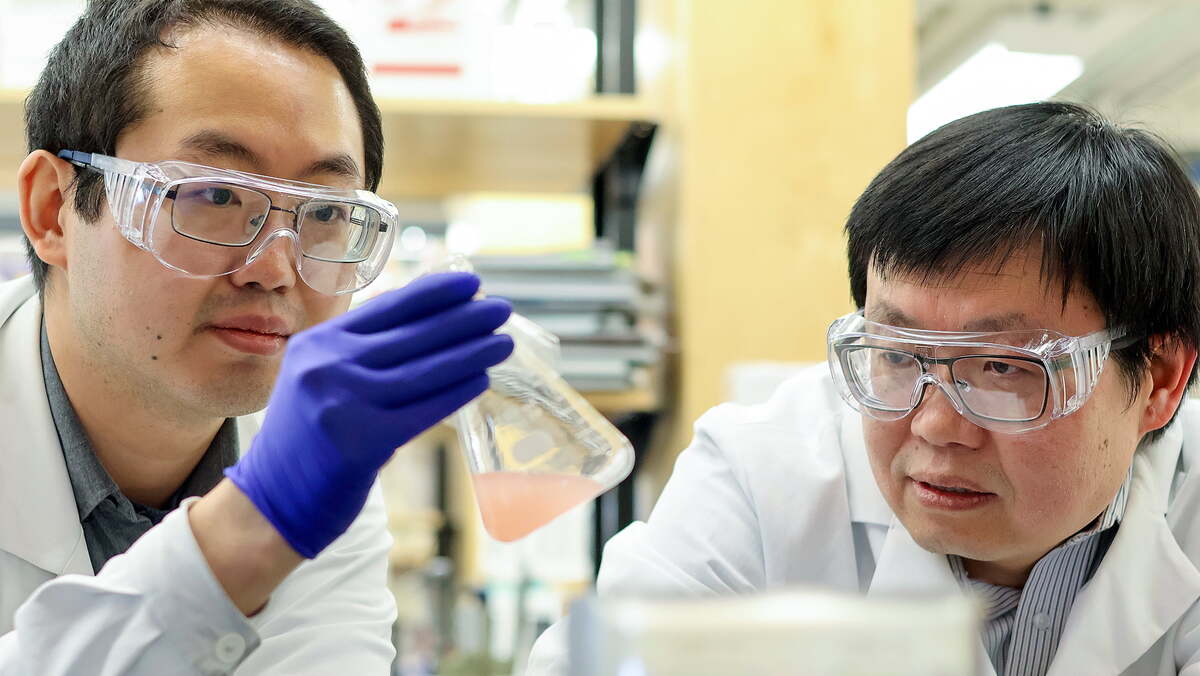
Engineered Red Yeast Converts Forestry Waste into Valuable Fatty Acid
April 2, 2025| |
Researchers from the University of Alberta developed an engineered red yeast that converts forestry waste into a high-value fatty acid. This discovery could provide economic advantages to forestry and food industries. The study is published in Bioresource Technology.
The researchers genetically modified red yeast by introducing two key enzymes found in pomegranate fruit. The yeast strain produced punicic acid, which has cholesterol-lowering, anti-inflammatory, and anti-carcinogenic properties. When cultured with a sugar solution derived from wood waste, the yeast strain produced punicic acid, which constituted 6.4% of its total fatty acid.
“We've shown that this engineered strain can serve as an industrial platform for converting large volumes of biomass waste or byproducts into a valuable product, which may open up opportunities for creating high-value nutritional supplements, functional food and animal feed ingredients,” said Guanqun Chen, Assosciate Professor in the Faculty of Agricultural, Life & Environmental Sciences and Canada Research Chair in Plant Lipid Biotechnology.
The researchers plan to refine the yeast strain to increase punicic acid production and explore alternative renewable feedstocks from Alberta's forestry and agricultural industries, such as sugar beet molasses. They also plan to engineer red yeast to produce other specialty fatty acids, like omega-3s, for nutraceutical applications.
For more information, read the article from the University of Alberta.
| |
You might also like:
- Experts Develop Engineered Yeast with Increased Healthy Fatty Acid
- Engineered Yeast to Help Boost Drug Supply
- Genetically Engineered Probiotic Yeast Produces Beta-Carotene
Biotech Updates is a weekly newsletter of ISAAA, a not-for-profit organization. It is distributed for free to over 22,000 subscribers worldwide to inform them about the key developments in biosciences, especially in biotechnology. Your support will help us in our mission to feed the world with knowledge. You can help by donating as little as $10.
-
See more articles:
-
Plant
- FSA and FSS Confirm Safety of GM Soybean MON 87705 x MON 87708 x MON 89788
- Australia's Gene Technology Regulator Invites Comments on GM Canola Field Trial
- Iron-biofortified Rice Developed to Help Combat Iron Deficiency Anemia
-
Animal
- Unlocking the Potential of Animal Biotech in the Philippines: Research Updates and Regulatory Prospects
-
Food
- Pistachio DNA Map Could Lead to More Nutritious and Sustainable Nuts
- Cell-Cultivated Fish Diminishes Seafood Allergy Risks
-
Environment
- Study Shows US Public Attitudes on Genetically Engineered Microbiomes
- Engineered Red Yeast Converts Forestry Waste into Valuable Fatty Acid
-
Read the latest: - Biotech Updates (January 28, 2026)
- Gene Editing Supplement (January 28, 2026)
- Gene Drive Supplement (February 22, 2023)
-
Subscribe to BU: - Share
- Tweet

